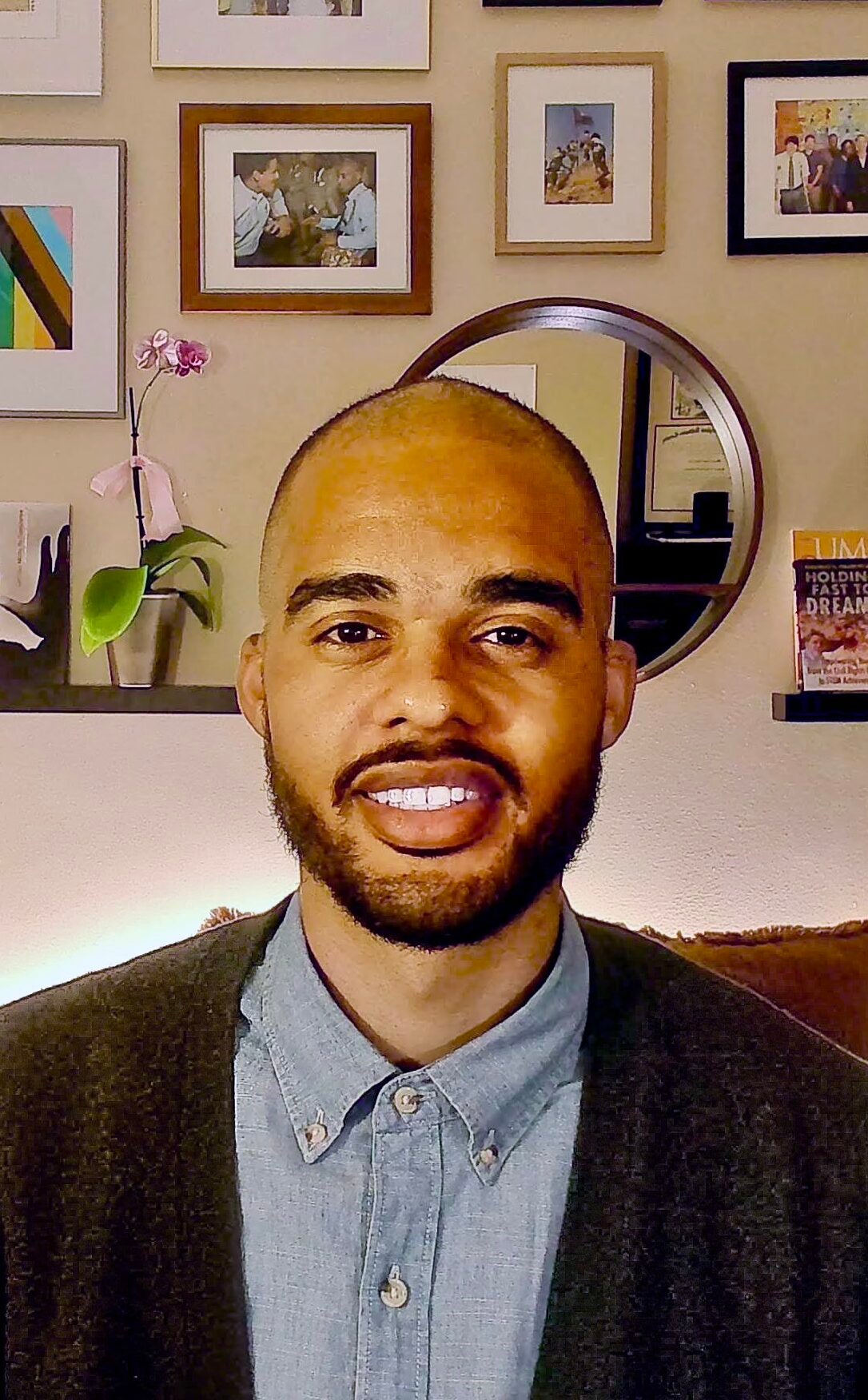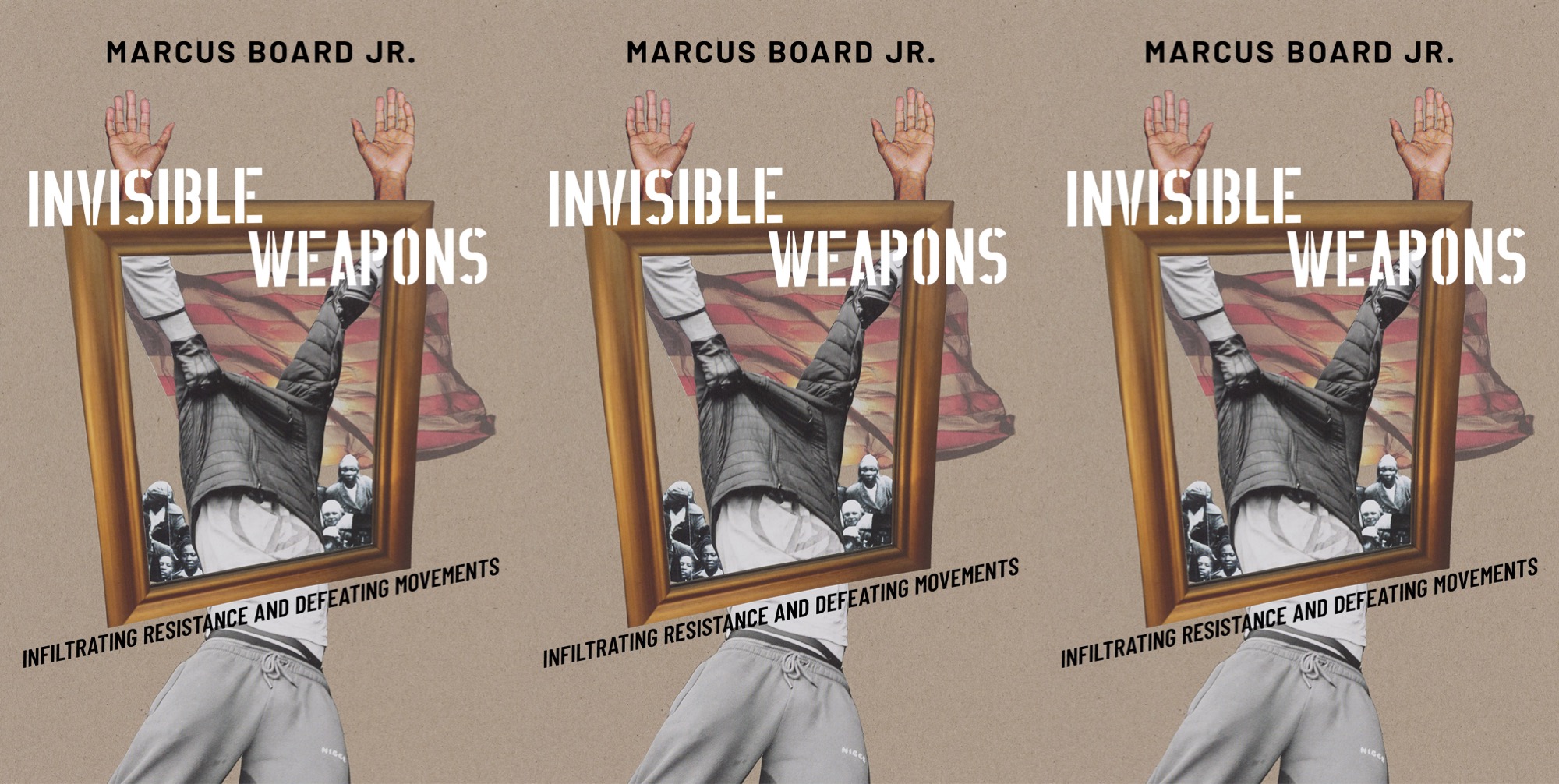Voice for Continued Change: Professor Marcus Board Releases New Book on How to Sustain Movements Against the Status Quo
Marcus Board, Ph.D. and assistant professor in the Department of African American Studies, is helping others advocate for themselves and their beliefs. In his new book, Invisible Weapons, Board discusses the United States government’s push to maintain the status quo, which fuels anti-Black, anti-feminist and, ultimately, anti-democratic oppressions in the country.
“I’m invested in liberatory and anti-oppressive politics, and I especially want to clarify how people are being exploited in ways that make them accomplices in their own suffering,” says Board. “A little heavy, but ultimately I want people to know how to avoid being played and have better ways to advocate for themselves and their beliefs.”
Maintaining Momentum
Published by Oxford University Press, Invisible Weapons is crucial at this moment as social justice movements, like the Movement for Black Lives, are under threat of ending. Board wrote this book as a guideline to strengthen today’s movement, so that it does not go the same way as others.

“After the Civil Rights Movement ended, all of the progress made over the movement’s fifty year span was rolled back — we can’t let that happen again,” Board says. “Justice movements come and go, but, when we understand that their going has to do with a repressive government, then we can better fortify the movement gains, prepare for the next uprising and be ready for the inevitable backlash.”
Invisible Weapons is a meticulously curated testament to grassroots communities. The book’s cover art was done by B. Sterling, an artist in Baltimore, and Board’s data is sourced from grassroots communities describing their experiences.
The professor says that the interviews with local organizers and blurbs from scholars alike are “all the product of relationships built on a foundation of mutual respect and compassion.”
“None of this is possible without acknowledging the reciprocated commitment to humanity that has moved my life beyond the school-to-prison pipeline and into the lion’s den of academia,” Board explains. “All my successes heretofore and into the future are about real people doing what we can to stick together and build. So, in short, I’d include a big thank you from me to my loved ones and I hope I make them proud.”
“Marcus Board’s Introduction to African-American Studies class opened my thinking to a whole new world of critical analysis,” reflects Fatima Dyfan (C’21). “The look into blackness, community and power that he provided his students was radical – solving issues from their roots and seeking ideas of love and communal care in politics, culture, and history. And, not only were we learning the how through academics, we were empowered to engage in radical actions within our lives.”
Dyfan, who majored in government and African-American studies with a theatre and performance studies minor, worked with Board on Invisible Weapons.
“It was a blessing to be a part of his process as a student in his intelligence community and as his book indexer because I felt as though my ideas mattered as well in his discovery and share of truth,” says Dyfan. “I can’t wait for audiences to interact with this work and we continue to investigate our systems to illuminate more experiences concealed within our society.”
Board’s interests in this topic originate from when he started becoming involved in his community and community advocacy at 17 years old. His experiences working for others led him to begin asking questions like ‘What holds us back?’ or ‘What are the sensitive conversations that must be handled with care?’ and ‘How is intellectualism and academia potentially helpful in these grassroots struggles for power?’
“Ultimately, I have been drawn to questions about justice and change from my experiences with young people, from Black communities and through the miracle of radical Black feminism that saved me,” Board says. “In the end, because I was sincere in my commitments to oppressed people everywhere, this work was the inevitable outcome. And I hope to do much more.”
